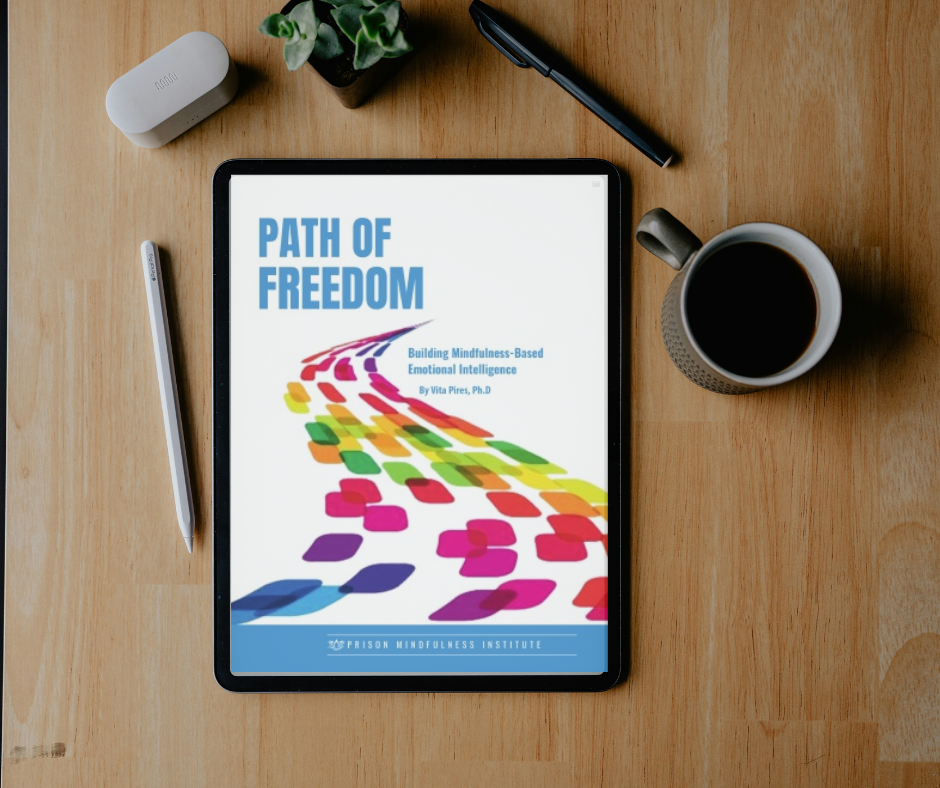Three Weeks of Communication
- PMI Staff

- Nov 21, 2014
- 3 min read
Updated: May 26, 2020
The power of speech was powerfully illustrated through a story a participant in our Path of Freedom class told us last week: When he was 18 years old, he stood in front of a judge, facing a jury-recommended sentence of 20 years. As the judge was reading a statement, his 18 year old self interrupted with a few choice words about the officers involved, the jury, and the perhaps the judge. He ended up receiving a 30 year sentence, and cursed the whole way out of the courtroom.
Facilitators of the Path of Freedom curriculum have often found the communication unit among the most difficult to deliver. The ideas presented, rooted in the ideas of Nonviolent Communication (NVC), run counter to some very deep habits we have in the ways we communicate, on an individual and cultural level. There is a tremendous amount to work with in around this topic, and trying to cover it in just one week has proven difficult for many a facilitator. For the Advanced Path of Freedom course we are piloting this year (for inmates who have done the introductory version twice), we thought to try three weeks of communication instead of just one. While three weeks is still not much time to grasp as deep and pervasive a topic as communication, I would like to offer up some observations from the classes.
Kate, who has years of training in NVC, led the first class, focused mostly on body language. She started by offering the observation that only about 7% of communication is contained within the words we speak, the rest is tone and body language. These numbers seemed to get folks’ attention, but no one offered up resistance to the idea that body language is incredibly important. Actually, the introduction of the topic got the guys going off on the ways that they had learned to hold themselves in prison to avoid unwanted attention and conflict. They emphasized the importance of not projecting a weak, scared persona that will invite predators, while at the same time not carrying oneself in an aggressive way that will threaten others, and often lead to explosive conflict. All the guys reported being very aware of the body-language of those around them, almost as a necessary survival skill. While there were a number of interesting insights brought up here, the idea of disarming tension through uncrossing arms and legs – dropping the armor – was a hard sell in this particular setting.
The quote from NVC founder Marshall Rosenberg, “Anything a person does is an attempt to make their life more wonderful,” is the one thing that seems to have really stuck with this group from the communication class they had as part of the introductory Path of Freedom course. This quote gets at the heart of understanding actions as arising out of fundamental needs, shared by everybody. Even if we find people’s actions repugnant, we can relate to the fundamental need, for love, for respect, for understanding, that motivated them. Once we are connected and communicating at the level of needs, there is a much better chance of understanding each other. The men in this class seemed to enjoy the process of understanding the needs, in themselves and others, that drive them to act in all sorts of ways. In the words of one participant: “It’s easy to get stuck on superficial differences, but we all have the same needs deep down.”
The challenge of transforming the way we communicate is a great one. Particularly among men, the desire to give advice seems almost overwhelming at times. On several occasions, when working with identifying needs, they would say something like “The need is for him to face his problem and go talk to his counselor about it,” unconsciously skipping right over the need into the terrain of strategy and advice. Several men expressed that offering advice is a way that they show others that they are listening and that they care, but this strategy can have its shortcomings. In the words of a participant: “Too often people are just dying to respond – sometimes I just want to vent and don’t need a response. Sometimes people don’t want advice they just want to talk.”
Speaking of advice, I can’t say I have any definitive conclusions from these three weeks to offer up to facilitators planning to lead the communication unit in the future. But I would love to hear what strategies you have found in teaching, facilitating, or learning the skill of communication? Please post below 🙂




Comments